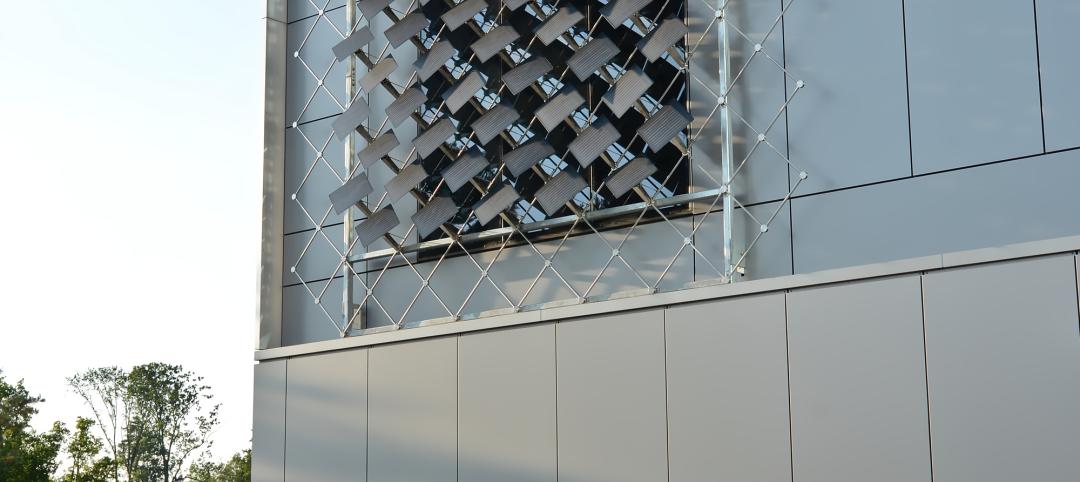Public libraries will avoid being relegated to the scrap heap of history in a digital age as long as they continue to serve as platforms for learning, creativity, and innovation that strengthen their communities.
That’s the conclusion of a new report “Rising to the Challenge: Re-envisioning Public Libraries,” which the Aspen Institute has produced in partnership with the Bill and Melinda Gates Foundation.
There are nearly 9,000 public library systems and 17,000 branches and outlets across the U.S. Nearly seven in 10 Americans say they have at least “medium” levels of engagement with their public libraries. And nearly a quarter of U.S. adults use their local libraries for Internet access.
“The public library is a key partner in sustaining the educational, economic and civic health of the community during a time of dramatic change, [and] there is already a significant physical presence and infrastructure to leverage for long-term success,” the report states.
As important, the library "is a core civil society institution, democracy’s 'maker space,'" the report asserts.
But as public libraries shift from being repositories for materials to platforms for learning and participation, their ability to provide access to vast amounts of content in all formats will be vital. “Libraries face two immediate major challenges in providing access to content in all forms,” the report says. “Being able to procure and share e-books and other digital content on the same basis as physical versions, and having affordable, universal broadband technologies that deliver and help create content.”
A 21st-century library will remain relevant only if it is built on three key assets: people, place, and platform. The report observes that libraries are “shifting from building collections to building human capital, relationships, and knowledge networks in the community.”
While a library is both a physical and virtual place, the report believes its physical presence “anchors it most firmly in the community.” But the library as a learning center is also becoming more of a destination, “a way station on the learning journey.” In that capacity the library in a digital age should also be “a virtual space accessible from anywhere 24/7.”
A library’s goal, says the report, should be to enable individuals and communities “to create their own learning and knowledge.” So a library “platform” needs to be adaptable to the individual’s needs. “The library as platform radically reshapes [its] daily activities, shifting away from the old model of organizing and ‘lending’ the world’s knowledge toward a new vision of the library as a central hub for learning and community connections.”
To be successful in a digital age, libraries, says the report, will require a different kind of access and distribution infrastructure, more sophisticated analytics “that will enable the library itself to become a “learning organization,” and the ability to scale themselves to facilitate innovation and competition.
The report recommends four strategic opportunities for action to guide libraries’ transformation: aligning their service to support community goals, providing access to content in all formats, ensuring the long-term sustainability of public libraries through greater attention to potential financial resources, and cultivating “leadership.”
But library professionals face several leadership challenges, such as taking advantage of digital tools; building the library’s capacity, which might benefit from exploring best practices outside the U.S.; thinking harder about succession planning; including trustee and “friend” groups in leadership development activities; and developing strategies that can keep pace with larger disruptive changes.
Libraries and their communities must also be watchful, and be prepared to respond to, several important developments and trends, including new technologies and their impact on a global information economy, online education, the boundaries of privacy and data protection, and “hyperconnected” societies.
Related Stories
Geothermal Technology | Jul 29, 2024
Rochester, Minn., plans extensive geothermal network
The city of Rochester, Minn., home of the famed Mayo Clinic, is going big on geothermal networks. The city is constructing Thermal Energy Networks (TENs) that consist of ambient pipe loops connecting multiple buildings and delivering thermal heating and cooling energy via water-source heat pumps.
High-rise Construction | Jul 29, 2024
Safdie Architects’ Shanghai office tower features glass-enclosed corner garden that ascends the 35-story structure
Safdie Architects has announced the completion of LuOne Mixed-Use Complex—a business, retail, and entertainment development in the Luwan district of Shanghai, China. The mixed-use complex consists of an eight-level retail galleria, which opened in 2018, and a 35-story office tower, which recently reached completion.
Casinos | Jul 26, 2024
New luxury resort casino will be regional draw for Shreveport, Louisiana area
Live! Casino & Hotel Louisiana, the first land-based casino in the Shreveport-Bossier market, recently topped off. The $270+ project will serve as a regional destination for world-class gaming, dining, entertainment, and hotel amenities.
Smart Buildings | Jul 25, 2024
A Swiss startup devises an intelligent photovoltaic façade that tracks and moves with the sun
Zurich Soft Robotics says Solskin can reduce building energy consumption by up to 80% while producing up to 40% more electricity than comparable façade systems.
Codes and Standards | Jul 25, 2024
GSA and DOE select technologies to evaluate for commercial building decarbonization
The General Services Administration and the U.S. Department of Energy have selected 17 innovative building technologies to evaluate in real-world settings throughout GSA’s real estate portfolio.
Great Solutions | Jul 23, 2024
41 Great Solutions for architects, engineers, and contractors
AI ChatBots, ambient computing, floating MRIs, low-carbon cement, sunshine on demand, next-generation top-down construction. These and 35 other innovations make up our 2024 Great Solutions Report, which highlights fresh ideas and innovations from leading architecture, engineering, and construction firms.
Senior Living Design | Jul 23, 2024
The growing importance of cultural representation in senior living communities
Perkins Eastman architect Mwanzaa Brown reflects on the ties between architecture, interior design, and the history and heritage of a senior living community’s population.
MFPRO+ News | Jul 22, 2024
Miami luxury condominium tower will have more than 50,000 sf of amenities
Continuum Club & Residences, a new 32-story luxury condominium tower in the coveted North Bay Village of Miami will feature more than 50,000 sf of indoor and outdoor amenities. The program includes a waterfront restaurant, dining terraces with resident privileges, and a private dining room outdoor pavilion.
Healthcare Facilities | Jul 22, 2024
5 healthcare building sector trends for 2024-2025
Interactive patient care systems and trauma-informed design are among two emerging trends in the U.S. healthcare building sector, according to BD+C's 2024 Healthcare Annual Report (free download; short registration required).
MFPRO+ News | Jul 22, 2024
6 multifamily WAFX 2024 Prize winners
Over 30 projects tackling global challenges such as climate change, public health, and social inequality have been named winners of the World Architecture Festival’s WAFX Awards.



















